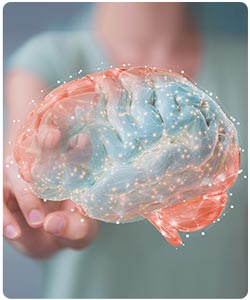 Binge eating disorder can result in obesity and associated health conditions, such as diabetes, hypertension, and heart disease. Even less recognized disorders, like ARFID, can lead to nutritional deficiencies and growth issues. The long-term effects of eating disorders often extend beyond physical health, impacting emotional and psychological well-being. It is crucial for individuals affected by eating disorders to seek professional help to address both the physical and psychological aspects of their condition.
Binge eating disorder can result in obesity and associated health conditions, such as diabetes, hypertension, and heart disease. Even less recognized disorders, like ARFID, can lead to nutritional deficiencies and growth issues. The long-term effects of eating disorders often extend beyond physical health, impacting emotional and psychological well-being. It is crucial for individuals affected by eating disorders to seek professional help to address both the physical and psychological aspects of their condition.
The consequences of these disorders extend beyond the individual, affecting families and communities. Individuals with eating disorders may experience severe health issues, including malnutrition, heart problems, and psychological distress. By educating ourselves about eating disorders, we can foster compassion and support for those affected, encouraging them to seek help and embark on a path to recovery.
Signs and Symptoms to Recognize
Recognizing the signs and symptoms of eating disorders is crucial for early intervention and support. Many individuals may hide their struggles, making it difficult for friends and family to identify the underlying issues.
Additionally, individuals may experience social withdrawal, as they often feel embarrassed or ashamed of their eating behaviors. This isolation can further deepen their psychological struggles, making it challenging to seek help. Addressing the psychological aspects of eating disorders is vital for effective treatment and recovery, as it helps individuals develop healthier coping mechanisms and rebuild their self-esteem.
They can affect anyone, regardless of age, gender, or background. Common features of eating disorders include severe restriction of food intake, compulsive eating, or purging behaviors. The consequences of these disorders can be devastating, resulting in significant health issues and emotional distress. Understanding what eating disorders are is the first step in raising awareness, fostering empathy, and encouraging individuals to seek help when needed.
Physical Health Consequences of Eating Disorders
The physical health consequences of eating disorders can be severe and, in some cases, life-threatening. Individuals with anorexia may experience malnutrition, electrolyte imbalances, and weakened bones, increasing the risk of fractures and osteoporosis. Bulimia can lead to dental erosion, gastrointestinal problems, and heart complications due to the strain of frequent purging.
 Common Types of Eating Disorders
Common Types of Eating Disorders
Eating disorders come in various forms, each presenting unique challenges and symptoms. Understanding the common types of eating disorders can help individuals recognize them in themselves or others, fostering early intervention and support.
 Encourage them to seek professional help and offer to assist them in finding resources, whether through therapy or support groups. Be mindful of your language; focus on health and well-being rather than appearance or weight. Finally, take care of yourself, too; supporting someone with an eating disorder can be emotionally taxing, so make sure you seek support for your own well-being as well.
Encourage them to seek professional help and offer to assist them in finding resources, whether through therapy or support groups. Be mindful of your language; focus on health and well-being rather than appearance or weight. Finally, take care of yourself, too; supporting someone with an eating disorder can be emotionally taxing, so make sure you seek support for your own well-being as well.
 Eating disorders are complex conditions that affect millions of people worldwide, impacting not just physical health but also emotional and mental well-being. These disorders can manifest in various forms, including anorexia nervosa, bulimia nervosa, and binge eating disorder, each with its unique challenges and health implications. Understanding eating disorders is crucial for recognizing the signs and symptoms that often go unnoticed.
Eating disorders are complex conditions that affect millions of people worldwide, impacting not just physical health but also emotional and mental well-being. These disorders can manifest in various forms, including anorexia nervosa, bulimia nervosa, and binge eating disorder, each with its unique challenges and health implications. Understanding eating disorders is crucial for recognizing the signs and symptoms that often go unnoticed.
Supporting Loved Ones with Eating Disorders
Supporting loved ones with eating disorders can be challenging, but your support can make a significant difference in their recovery journey. Approach the situation with compassion, understanding, and patience, as individuals may feel shame or denial about their condition. It’s essential to listen without judgment and create an open line of communication, allowing them to express their feelings and fears.
 Anorexia Nervosa: Characterized by an intense fear of gaining weight, individuals severely restrict their food intake, often leading to dangerously low body weight.
Anorexia Nervosa: Characterized by an intense fear of gaining weight, individuals severely restrict their food intake, often leading to dangerously low body weight.
Bulimia Nervosa: Involves cycles of binge eating followed by purging behaviors, such as vomiting or excessive exercise, to prevent weight gain.
Binge Eating Disorder: Features recurrent episodes of consuming large amounts of food without compensatory behaviors, often accompanied by feelings of guilt and shame.
Avoidant/Restrictive Food Intake Disorder (ARFID): A condition marked by an extreme aversion to certain foods or food groups, leading to inadequate nutrition without concerns about body image.
Pica: Involves consuming non-food substances, such as dirt or chalk, which can lead to serious health issues and nutritional deficiencies.
Recognizing these common types of eating disorders is essential for promoting awareness and encouraging those in need to seek help. If you or someone you know is struggling with an eating disorder, understanding the specific type can be the first step toward recovery.
In the event you cherished this short article and also you desire to receive more information about Intensive outpatient program (IOP) / partial hospitalization program (PHP) generously visit our web page.
